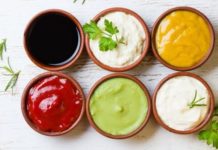People give up meat for a variety of reasons. Someone deliberately decided to become a vegetarian, while doctors recommend it to someone. One way or another, the question of how to replace meat, and from what products the body can obtain protein, arises for everyone. The editors of the site "bestx.htgetrid.com/en/" have prepared for you an overview of the best plant products that can replace meat.
Content
Avoiding meat: pros and cons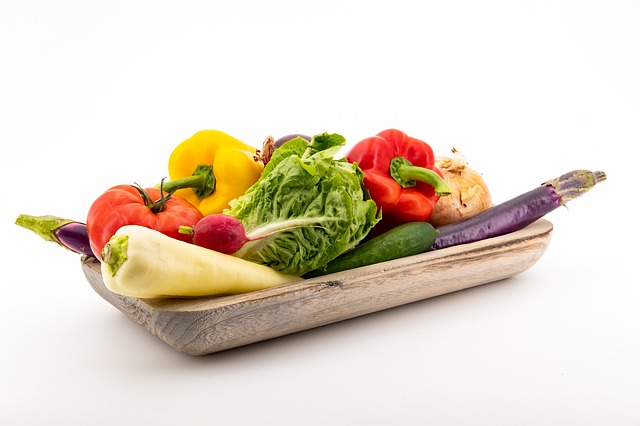
There is still no definite answer to the question of excluding meat products from the diet or not. Today, there is a debate about the benefits and dangers of meat. However, it is difficult to argue with the fact that people who do not eat meat are less likely to suffer from diabetes or heart disease. They are also not prone to obesity. But the moment of balanced and varied nutrition is important here.
Positive changes occurring when replacing meat with plant foods:
- Unloading the digestive tract. It's no secret that meat products take longer to digest. As a result, toxins and toxins are formed in the intestines. And in the absence of such heavy food, the digestion process is greatly facilitated.
- Weight loss. In the absence of meat proteins, weight loss naturally occurs. Since plant foods have fewer calories, and they do not contribute to the retention of excess fluid in the body. However, there is also an opposite side. You should not get carried away with cereals and flour products, since excess weight will come along with carbohydrates. Nutrition should be balanced.
- Reducing swelling and blood pressure. Here, too, everything happens naturally, thanks to an increase in urine output. Due to which excess fluid is excreted from the body along with urine, and as a result, edema decreases or completely disappears and blood pressure decreases.
And here are the possible negative consequences of refusing meat:
- The development of protein deficiency. The fact is that protein of animal origin is necessary for the body for the natural processes occurring in it: cell renewal, production of necessary hormones and enzymes. Vegetable protein is not able to fully cope with these tasks. Therefore, if animal protein ceases to come with nutrition, then the body begins to extract it from its own resources, gradually depleting itself, which will eventually lead to the development of various diseases.
- Iron deficiency. Iron is necessary for the human body for normal blood formation and the production of enzymes that help the kidneys to function properly. The iron contained in meat is absorbed much more efficiently than from cereals and other plant foods.
- Disorders of the nervous system. Stable functioning of the nervous system is impossible without B vitamins. They affect blood formation and increase protein production. And it is their human body that gets from meat products.
And these are just some of the possible pros and cons associated with avoiding meat consumption. Therefore, before completely removing this product from your diet, it is important to weigh the pros and cons and consult your doctor.
TOP 7 plant-based meat substitutes
Nuts
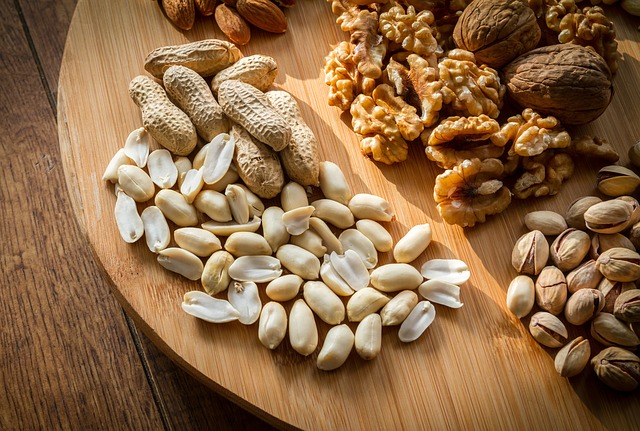
In addition to being delicious, these foods are also very nutritious.Regular consumption of various nuts in food will provide the body with protein, healthy fats, complex carbohydrates, fiber, vitamins and trace elements. In terms of protein content, nuts are practically not inferior to meat. Their calorie content is high, so a few pieces during a snack can satisfy hunger.
Today, a huge number of different varieties of nuts are known, and each of the types has beneficial properties and effects on the human body. For example:
- Walnut contains iodine and therefore is useful for thyroid diseases. And due to the low content of sugar and starch, it is indicated for people with diabetes.
- Cashews help in the treatment of certain skin diseases that have arisen due to metabolic disorders in the body. Promotes recovery from flu, bronchitis, pharyngitis and other respiratory diseases.
- Almonds, due to their high content of vitamin E, prevent premature skin aging. Also, this nut is a natural analgesic.
- Hazelnuts are able to remove toxins from the body. And the calcium, potassium and sodium contained in it have a calming effect on the nervous system.
Doctors recommend introducing various types of nuts into the daily diet, not only as meat substitutes, but also as an independent product. After all, the useful substances contained in them are able to normalize the work of many systems in the human body.
Advantages:
- high content of unsaturated fatty acids Omega-3;
- help to improve mental performance;
- support the work of the cardiovascular system;
- quickly satisfy hunger, which contributes to the fight against excess weight.
Disadvantages:
- an allergic reaction is possible;
- in large quantities, walnuts can provoke allergic stomatitis;
- Excessive consumption of cashews is contraindicated in kidney stones and osteoporosis.
Soy
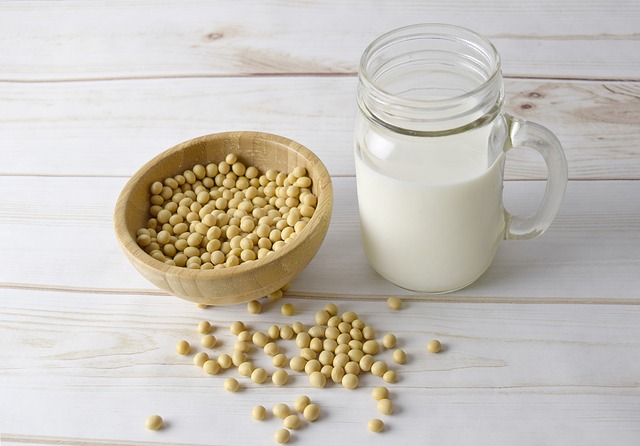
Soy beans contain a high amount of protein, which is very similar in properties to meat proteins. In addition, soy contains amino acids that are so essential for the normal functioning of the human body. Such a rich composition makes soy and soy products an excellent alternative to meat.
Trace elements contained in soybeans, such as calcium, phosphorus, iron and magnesium, as well as B vitamins, have a beneficial effect on the functioning of the nervous system and skin condition. In addition, soy has been shown to inhibit the development of osteoporosis in older people.
Thus, soy can fully replace meat, but you should not completely rely on its multifaceted composition and switch exclusively to soy products. Such a "diet" will not add health to the body. Soy is an excellent nutritious product, but it must be consumed in combination with other equally healthy plant foods.
Advantages:
- contains vitamin E, which protects the body from negative effects;
- contains all the essential amino acids;
- soy is a strong antioxidant that prevents the development of senile dementia;
- Due to its low fat content, soy is suitable for people who want to lose weight, as well as for the treatment of obesity.
Disadvantages:
- soy is the object of experiments in genetic engineering, which increases the production of genetically modified products that are harmful to human health;
- soy is contraindicated in people with disorders of uric acid metabolism.
Tofu
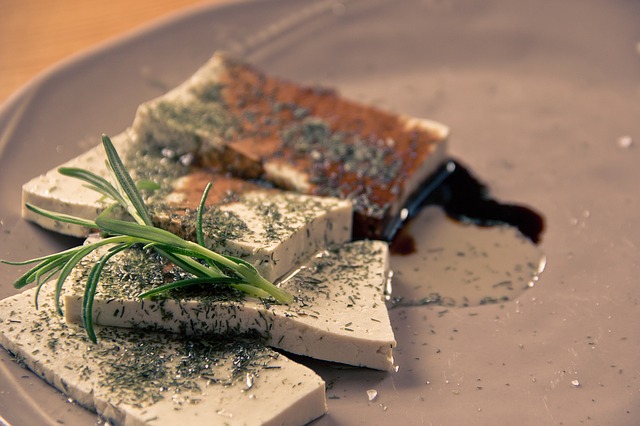
Tofu is a soy cheese that has become one of the most popular meat substitutes. This product is a source of vegetable protein, surpassing meat products in quantity. Tofu cheese is versatile and unpretentious to prepare. It's great for baking, fried or steamed, and even smoked or pickled. Such cheese is even used to prepare desserts and sauces, or add to soup.
Since tofu is made from soybeans, it also contains a lot of calcium, zinc, magnesium, phosphorus and iron.
Tofu comes in three varieties: soft, dry, and hard. Mild is usually used for making desserts, sauces and soups.But firm, suitable for baking or frying. This soy cheese, in any form, is gaining popularity around the world, and it is increasingly preferred, giving up red meat.
Advantages:
- low calorie;
- will diversify the menu;
- well absorbed even by allergy sufferers;
- contains all the essential amino acids;
- consumption of the required daily allowance can reduce the development of cardiovascular diseases.
Disadvantages:
- short shelf life;
- stored in containers with water, which must be changed regularly after opening.
Tempe
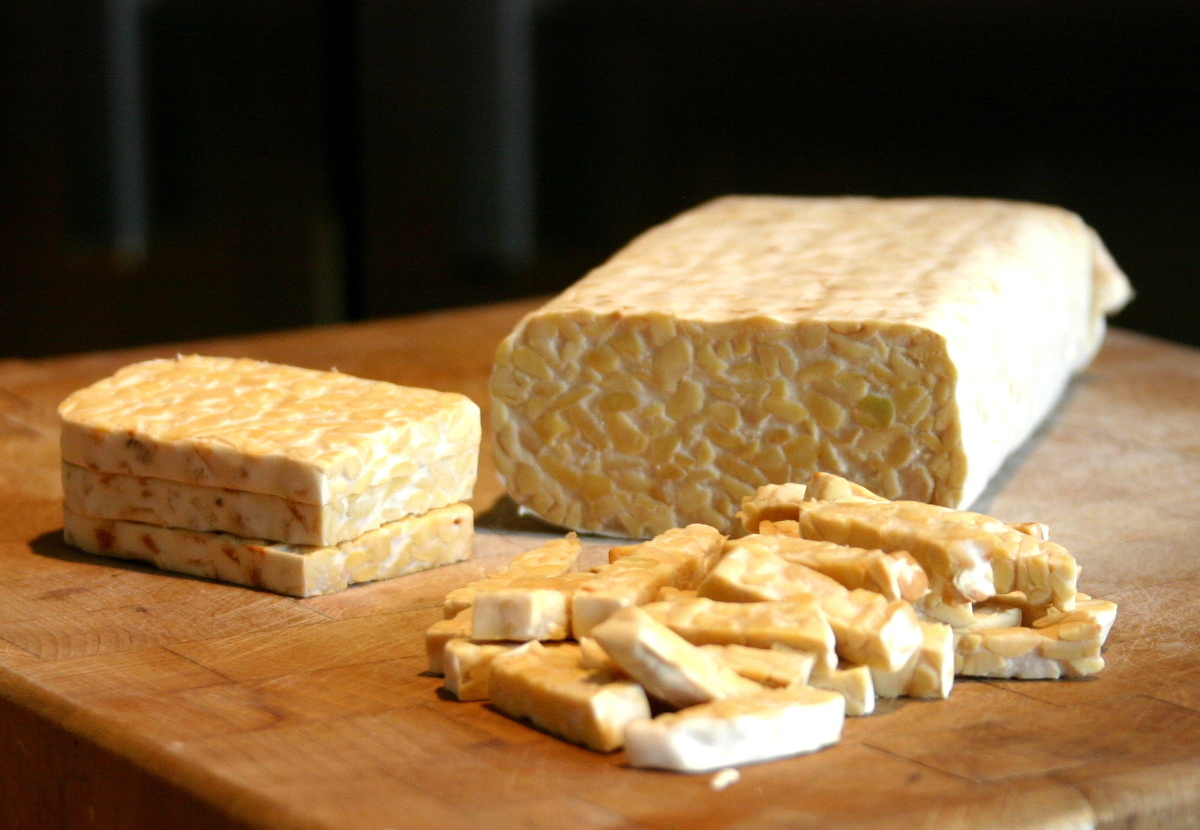
Tempeh is another soy-based product. His homeland is Indonesia. Unlike making tofu, the beans are left intact here, which makes the product even richer in protein, fiber, vitamins and minerals. It is also rich in omega-3 and omega-6 polyunsaturated acids.
Just like tofu, tempeh can be prepared in a variety of ways. And it can act as a side dish or as an independent dish, as a substitute for meat or fish products.
As a rule, ready-made tempeh is sold in rectangular briquettes, up to 1.5 centimeters thick.
Advantages:
- well absorbed;
- rich in fiber;
- low calorie;
- goes well with fish and seafood.
Disadvantages:
- very short shelf life;
- poorly absorbed in combination with animal proteins and fats.
Quinoa
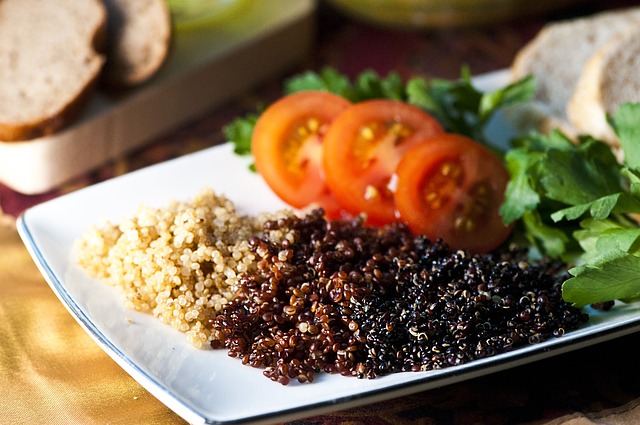
Quinoa is a pseudo-grain crop. Its fruits are fruits. But in cooking, the seeds of this plant are used. They are rich in protein and trace minerals and are completely gluten-free. Therefore, it is a great substitute for meat. Quinoa dishes are also good for people with gluten intolerance. Due to its lysine content, quinoa seeds help the body absorb calcium.
There are several varieties of quinoa that affect the color of the seeds. They can be red, brown, white or black. The seed coat is bitter, so rinse it thoroughly with water before cooking.
Like any other cereal, quinoa is boiled. It takes 15 minutes to get a crumbly side dish. Also, ready-made seeds can be added to salads and fillings for various dishes.
When using seeds in the diet, individual intolerance may appear, therefore, it introduces quinoa to the menu, followed in small portions and gradually. There are also contraindications for women during lactation, as the child may be sensitive to this product.
Advantages:
- pleasant taste;
- slow down the aging process in the body;
- well absorbed by the human body;
- suitable for gluten intolerance;
- helps to cleanse toxins;
- helps to strengthen and restore the body in the postoperative period and after illness.
Disadvantages:
- there are contraindications;
- difficult to find in regular grocery stores and supermarkets.
Mushrooms
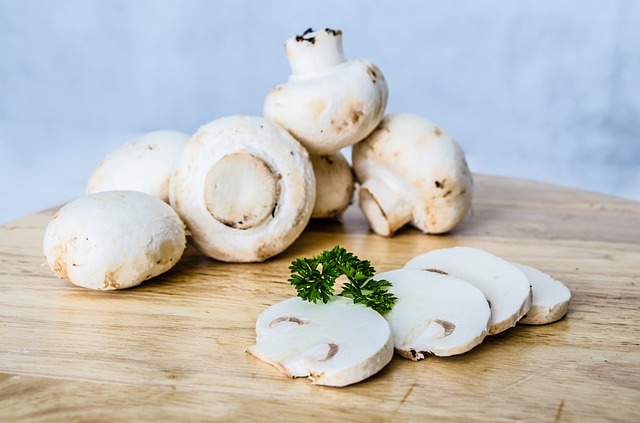
Everyone knows that mushrooms are a vegetable source of protein. Moreover, these gifts of nature are very useful and tasty. They are often used as an independent dish with some kind of side dish. In their nutritional value, mushrooms may well compete with meat. And in combination with other foods rich in proteins, it is permissible to even completely exclude the latter from the diet without any losses to the body.
The nutritional values of the same mushroom can vary depending on various factors. So, for example, indicators of protein and protein content are significantly higher in dried mushrooms. And the amino acid content is higher in young representatives of the species.
Among the whole variety of known varieties, there are five types of mushrooms that are the richest in proteins and amino acids:
- Champignons take the first place in this ranking. Compared to porcini mushrooms, the nutritional composition of champignons is less balanced, but they contain more protein than any other species: 4.3 g per 100 g. As a rule, champignons are not dried, but are used raw. Due to the fact that these mushrooms, in addition to natural conditions, are also grown on an industrial scale, you can buy them in any supermarket.
- Porcini mushrooms are in second place. The protein content in raw form of these mushrooms is 3.7 g, and in dried form - more than 30 g. Those who have decided to give up meat are recommended to introduce porcini mushroom into their diet. In addition to the high protein content, these mushrooms are full of vitamins and minerals, as well as a whole list of useful substances.
- On the third step are the boletus. 100 g of raw boletus boletus contain about 3.3 g of protein, and after drying, this figure reaches 32.4 g. Also, these mushrooms are rich in iron and their nutritional value is as close as possible to the composition of meat. Therefore, they can completely replace the latter without causing absolutely any harm to the body.
- The fourth place is taken by boletus. 100 g of fresh oil contains 2.4 g of protein. But it is not customary to dry these mushrooms.
- And finally, the fifth place is taken by boletus. Fresh they contain about the same amount of protein as butter, namely 2.3 g. After drying, this value increases to 23.5 g, which is slightly higher than in chicken meat.
Advantages:
- low-calorie product;
- variety of choice;
- mushroom diet can be used for weight loss;
- rich nutritional composition.
Disadvantages:
- excessive consumption of mushrooms can lead to gastrointestinal problems.
Seitan
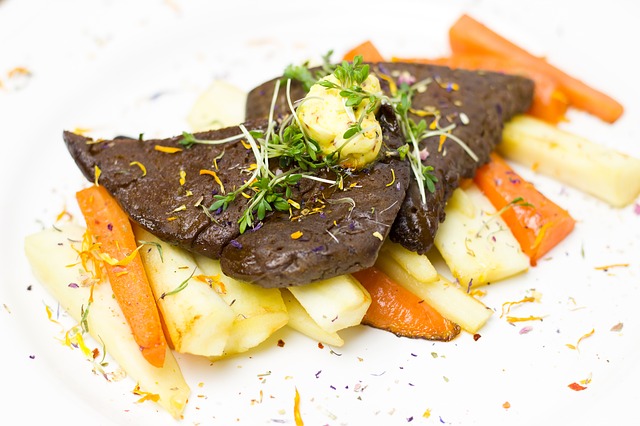
Seitan is a herbal product made from wheat flour. It is rich in nutrients and is used for preparing various dishes, replacing meat in them. 100 g of seitan contains 25 g of protein. The product is often called "vegetarian meat" because when cooked it acquires a similar appearance and the same fibrous structure.
Seitan is usually prepared with vegetables, cereals and pasta. It can completely replace meat products both in terms of taste and nutritional quality. There are many recipes using this miracle product. Cutlets are made from seitan, added to salads, fried, boiled, served with a side dish and as an independent dish. Also suitable for both hot and cold consumption.
Advantages:
- completely absorbed by the body;
- lends itself to different cooking processes.
Disadvantages:
- calorie;
- sold only in health food stores;
- not suitable for people with gluten intolerance.
Contraindications for refusing meat
Despite the positive aspects associated with the rejection of meat products, there are groups of people for whom such a diet is absolutely not permissible:
- Children under 4 years of age. Animal protein is involved in the development of all organs and systems of the child's body. And its deficiency can adversely affect the physical and mental state of the child. Therefore, it is so important that baby food is as complete and balanced as possible.
- Pregnant women and women during lactation. The previous point is also relevant for the development of the fetus and for the newborn. And also a full-fledged balanced diet is extremely important for maintaining the health of a new mother.
- The manifestation of various ailments. As with any other diet, if during the exclusion of meat products from the diet, the state of health deteriorates sharply, this is a sure sign to return to your usual diet.
- People with chronic diseases, as well as during periods of their exacerbation. Any dietary restrictions are stressful for the body. Especially if there are any diseases. Therefore, here you should not engage in amateur performances, but it is better to consult with your doctor.
Thus, in the absence of any diseases or ailments, it is quite possible to stop eating meat. However, first of all, you should listen to your own body, and not follow the lead of fashion trends.
If you have any experience with the meat substitutes presented in the review or other more interesting and nutritious options, tell us about it in the comments.






